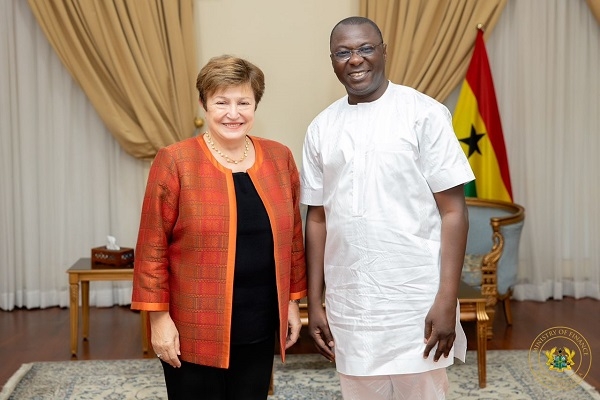The Federal Reserve is expected to keep interest rates unchanged for a fifth consecutive time and wait for further evidence of sustainable inflation before making any rate cuts, in a departure from its usual response to an economic downturn.
The Malaysian government and central bank are taking steps to boost the economy, including urging government-linked companies to bring back funds from overseas and encouraging private sector firms to invest domestically, in an effort to strengthen the ringgit and improve economic growth.
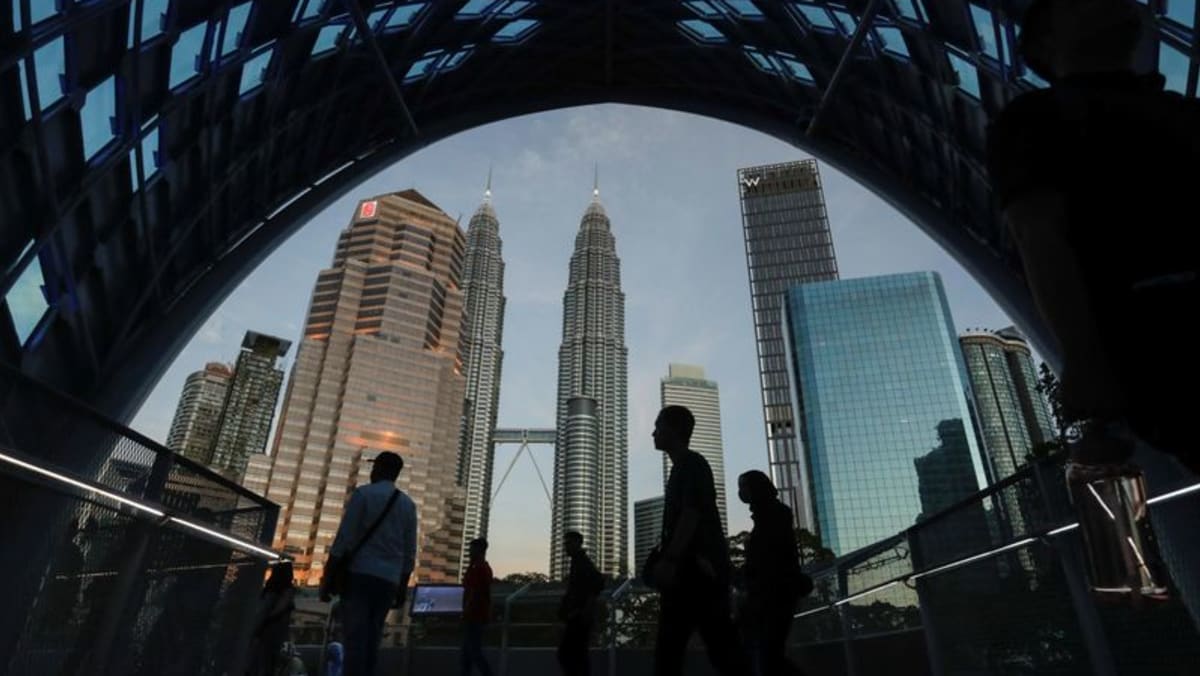
The "Great Resignation" has faded, but workers in industries such as personal care services and trucking are still quitting in large numbers, motivated by higher-paying positions, while other industries like retail and professional services have seen a decrease in quitting as wage hikes have moderated due to a cooling job market and economic uncertainty.

India is expected to grow steadily at a rate of 6.5%-7% in the long term, according to Morgan Stanley's chief Asia economist, who also believes that India is unlikely to replace China as a global manufacturing hub due to infrastructure limitations and a low skilled workforce.

The Federal Reserve is expected to keep interest rates unchanged this week, but their economic projections could signal fewer rate cuts and a delayed start to policy easing, which would have significant implications for the economy and the upcoming presidential election.

Canadian payments processor Nuvei Corp is reviewing potential deals following reports that private equity firm Advent International is considering buying the company.

Asian shares rise as Chinese data beats expectations and investors brace for central bank meetings, including the possibility of the Bank of Japan ending negative interest rates and the Federal Reserve signaling a higher for longer policy outlook.

China's positive industrial output and retail sales data suggests that factory growth globally is picking up, while the Bank of Japan is expected to end negative interest rates, and central banks in several other countries are also meeting this week.

The Bank of England is expected to resist signaling interest rate cuts despite declining inflation, as Governor Andrew Bailey remains cautious about a shift to lower borrowing costs, although investors are betting on rate cuts before the end of summer.

China's thermal coal output has experienced its first decline in years, suggesting that the country's efforts to bolster energy security through increased coal production may have reached its peak.

Japan's Bank of Kyoto is offering e-learning sessions to train its staff on how to operate in a positive interest rate environment as the country nears the end of eight years of negative interest rates. The training covers topics such as the importance of interest rates, how lending rates are set, and how rising interest rates impact the bank's business and clients. The sessions also provide guidance on convincing borrowers to accept higher charges and increasing deposits through better customer communication.

China's industrial production grew 7% in the first two months of the year, beating expectations, while retail sales increased by 5.5%, slightly higher than projected.

Restricting access to the internet and social media platforms, whether officially or unofficially, hinders economic flow, causes financial losses, damages a country's image, and impacts its attractiveness for trade, investment, tourism, and international relations. A legal framework that protects internet access as a fundamental right with transparency, accountability, and adherence to human rights standards is necessary.

China's measures to restructure or swap local government hidden debt are inadequate and will only temporarily relieve the imminent liquidity crisis for regional authorities.

China's economic data for the first two months of the year rebounded due to the Lunar New Year holiday, but the property market continued to struggle and showed little signs of improvement. Retail sales and industrial output improved, but property investment fell and private investment only grew slightly, indicating the need to strengthen the foundation for sustained economic recovery.

Vietnam could experience annual crop losses of nearly $3 billion due to increased saltwater intrusion into arable land, with the Mekong Delta region being the most affected, according to new research from the country's environment ministry.
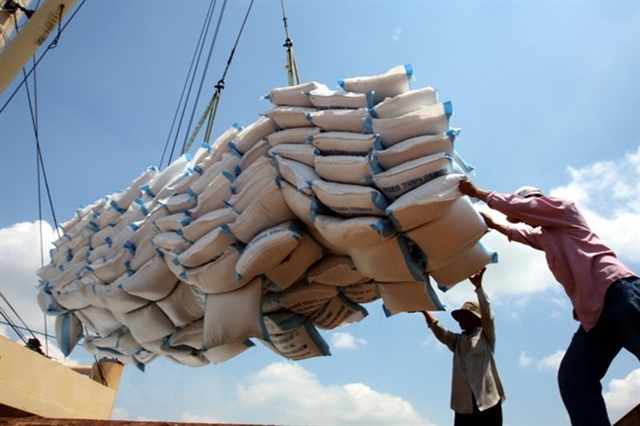
Ghana's decision to seek support from the International Monetary Fund (IMF) is proving to be successful, according to President Nana Addo Dankwa Akufo-Addo, with the country experiencing a clear economic turnaround as a result.
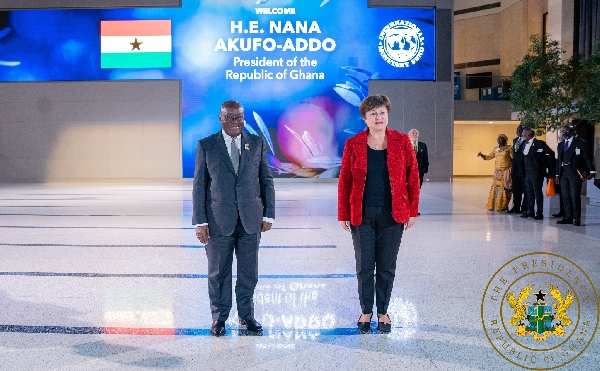
Nigerians spent N1.39 trillion on the importation of previously restricted items in the fourth quarter of 2023, following the lifting of the ban by the Central Bank of Nigeria, which also led to an increase of imported goods worth N2.15 trillion compared to the previous year; meanwhile, the Senate has warned against increasing the budget size through a supplementary budget and advised the government to use excess savings to fund deficits caused by the depreciation of the naira.

Saudi Arabia's non-oil revenues accounted for 50% of the country's GDP in 2023, reaching a record high and indicating progress in the Kingdom's economic diversification efforts under Saudi Vision 2030. Private-sector investments also surged, and various sectors, including arts & entertainment, real service exports, and the food sector, experienced significant growth. The World Bank has also noted the positive impact of diversification efforts in the Gulf Cooperation Council (GCC) region, with non-oil sectors compensating for the decline in oil sector activities. This indicates a promising outlook for economic growth in the GCC in the coming years.

Asian markets are starting the week on a cautious note as investors are concerned about the recent market volatility, upcoming U.S. and Japanese policy decisions, and the impact of rising U.S. bond yields on risk appetite. The BOJ's two-day meeting, where a possible interest rate hike is expected, and key economic data releases from China, Japan, and other countries will also shape market sentiment.

The CEO of precision-lens maker Optimax Systems believes that many changes in the economy, such as labor shortages and increased demand for certain industries, are likely to be permanent in the post-pandemic era, although Federal Reserve Chair Jerome Powell maintains that the full impact of the pandemic on the economy is yet to be determined.

Japanese chief executives are preparing for the end of Japan's negative interest rate policy, with the central bank expected to raise rates within weeks or even days, signaling the first rate hike since 2007 and allowing companies to increase prices and potentially boost compensation and wages.

India has transformed from "an economy with promise" to the third largest economy in the world, with a remarkable growth in stock markets and a burgeoning startup ecosystem, making it a leading global force, according to Satyan Gajwani, vice chairman of Times Internet.

Daily Kos expresses solidarity with the Black community and provides ways to get involved in upcoming elections.

Finance minister Nirmala Sitharaman emphasized the importance of the third tier of government's participation in implementing next-generation reforms, and she mentioned that private investment is increasing in emerging sectors such as semiconductors, solar energy, and green hydrogen.

India is set to hold the biggest election ever conducted, with Narendra Modi's Bharatiya Janata Party (BJP) expected to win due to its ability to appeal to multiple constituencies and a weak, divided opposition.

Cash-strapped Pakistan plans to request a bailout package of over $8 billion from the IMF under the Extended Fund Facility, potentially seeking an enhanced quota or climate finance instrument to address its economic issues, and discussions are being held for a larger EFF program.

Australian consumers are facing high electricity prices that are unlikely to significantly decrease, even as wholesale electricity costs come down, due to rising network costs and the requirement for regulators to factor in expected future wholesale power prices. Consumers are advised to shop around for the best deals to alleviate the burden of high electricity bills.
The UK ranks as the second-most miserable country in the world, with low scores in mental well-being attributed to factors such as economic challenges, distrust in politicians, and decline in overall happiness since the COVID-19 pandemic.
The decline in international students, particularly from Nigeria, has had a negative impact on the UK's higher education system, leading to potential staff and course cuts as universities face financial difficulties due to the loss of revenue from foreign students. This decline is attributed to the economic crisis in Nigeria and visa restrictions imposed by the UK government.
Family Dollar plans to permanently close 1,000 stores due to shoplifting, inflation, and reduced government benefits, leaving many low-income communities without access to affordable groceries and exacerbating food insecurity.

New Zealand's economy is in a deep per capita recession, raising questions about whether it is officially in a recession, with new GDP data set to provide insight.

Nigeria remains optimistic about the feasibility of the ECOWAS single currency, Eco, despite the recent failure of member states to meet the convergence criteria and the struggles of the Naira against major currencies.

Kazakhstan has opened a logistics center in Xian, China, to handle 66,000 containers annually, as rail freight traffic between China and Kazakhstan increased by 22% compared to the previous year.

The US is set to introduce tough pollution limits for automakers, with electric models projected to make up two-thirds of car and light truck sales by 2032, in an effort to meet greenhouse gas emission goals and shift towards electric vehicles.

Frontier markets are experiencing a "radical shift" in policy, leading to benefits for local-currency bond investors, Exxon Mobil's CEO is defending the company against environmentalists and investors, while Canadian Airbus A220 workers reject a proposed contract and initiate pressure tactics.

Central bankers are optimistic about the global economy, but there are risks of a hard landing for liberal democracy, capitalism, and the planet due to factors such as inflation, property market collapse in China, and the climate emergency.

Regional venture capital activity in the Middle East and North Africa thrives during the first week of Ramadan, with startups across various sectors experiencing a surge in funding, including a $30 million investment by Saudi Venture Capital Co. in Olive Rock Partners Fund I and the acquisitions of UAE-based Embedded by Mitgo Group and ORA Technologies by M2T.

The article provides an analysis of the biggest countries on Earth by area, as well as information about the largest economies and companies in these countries.

Many leading economic indicators suggest that the US economy may enter a recession in the next 6-12 months, but cutting interest rates to prevent a recession could risk a disastrous resurgence of inflation; therefore, the US Fed faces a difficult choice between risking a small recession now or potentially facing a catastrophic scenario of high inflation and rising interest rates.
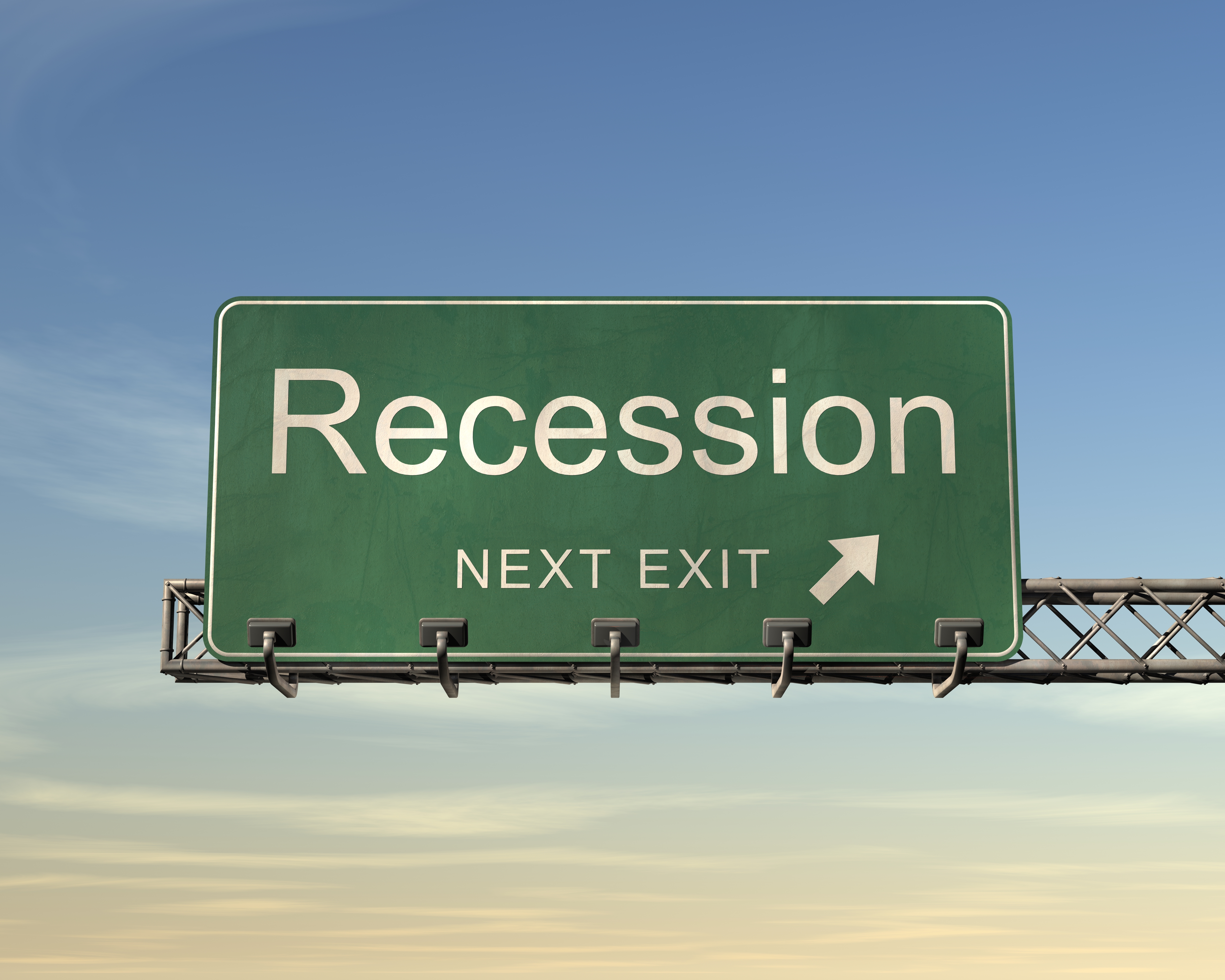
Mark Mullen, CEO of UK challenger bank Atom, believes that the company's move to a four-day work week has been a success, with improvements in metrics such as costs, sickness rates, and productivity, setting it apart from larger rivals. Mullen has no regrets about the decision and believes that the four-day work week works for Atom due to its technology-driven approach and focus on self-service for customers.

Tata AIA's Harshad Patil predicts sustained government momentum in infrastructure during the 2024 election year, with a focus on roads, railways, and defense sectors for value creation opportunities, and identifies bank and IT sectors as having strong growth potential.

European Central Bank (ECB) Governing Council member Pablo Hernandez de Cos predicts that interest rates will be cut in June if inflation continues to moderate as expected.

Consumers are facing mixed economic indicators, with rising gas prices and cautious spending, but economists remain optimistic about the economy and expect inflation to reach 2% by midyear.

India's current economic growth rate is reminiscent of the period between 2003 and 2007, with a focus on investment driving growth, increased market share in global exports, and effective management of macroeconomic stability risks, according to economists at Morgan Stanley.

The number of Chinese workers in Africa has hit its lowest point in over a decade, with factors such as the pandemic, oil prices, and the downsizing of China's Belt and Road Initiative contributing to the decline. While some construction projects have restarted, overall Chinese-financed projects have been declining, and it is unlikely that the numbers will rebound significantly in the near future.

Around 20 major companies will establish themselves in Hong Kong or expand their operations, resulting in over HK$40 billion in investments and the creation of more than 13,000 jobs in scientific research and management positions, according to Financial Secretary Paul Chan Mo-po; Chan also emphasized the need for Hong Kong to adapt to global economic shifts and position itself as an international innovation and technology center, a multinational supply chain management giant, and a trade finance hub.
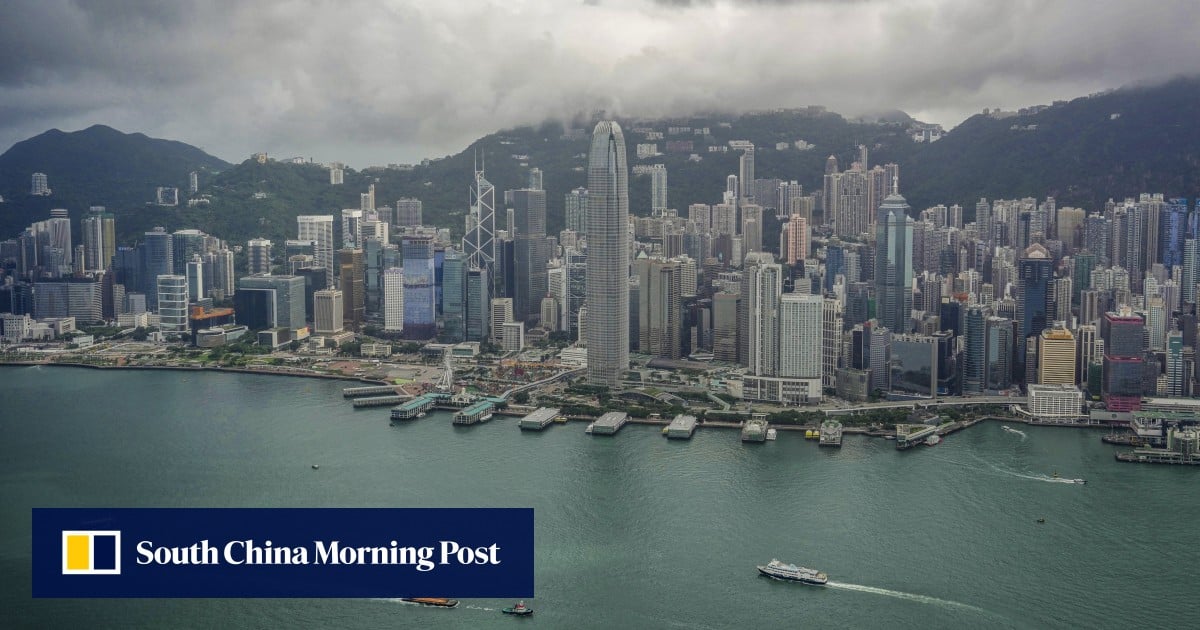
There are signs of economic recovery in the UK, with growth figures showing the economy emerging from a recession, property prices rising, and wages growing faster than prices; however, the economy has not reached pre-pandemic levels on a per-person basis, and the recovery is expected to be slow and modest.

China's finance minister, Lan Fo'an, has emphasized the importance of proactive fiscal policies in strengthening the country's economic recovery, highlighting the need for increased fiscal expenditure and the issuance of special government bonds for national strategies and security capabilities. The government aims to achieve stable fiscal operations and sustainable development.
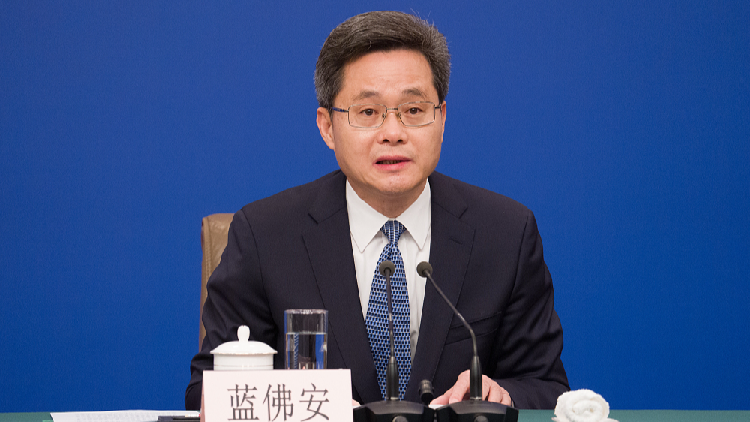
The Managing Director of the International Monetary Fund (IMF), Kristalina Georgieva, has arrived in Accra for bilateral talks with Ghanaian officials to strengthen collaboration and discuss the country's ongoing IMF program, as well as participate in an AI conference on driving economic growth and development in Ghana.
